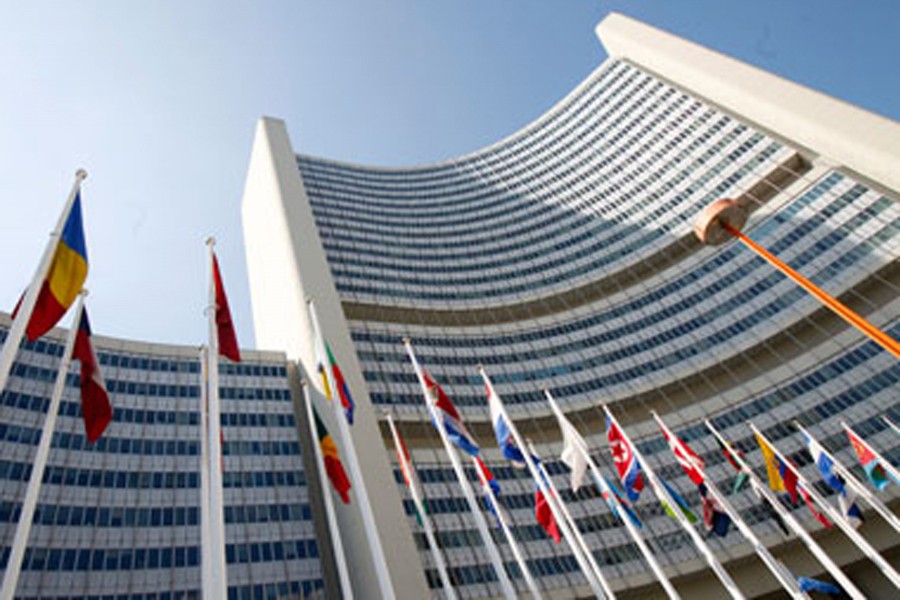
Published :
Updated :

Russia lately declared a 'truce' (ceasefire or a pause of five hours on daily basis) to stop fresh violence and deadly bombardments in Eastern Ghouta of Syria. However, even after such a humane and astute deed the news agency Reuters reported that violence and bloodshed continued in Ghouta! One Syrian said, 'This Russian truce is nothing but a farce, they are killing us every day'.
Russia is one of those five permanent members of the United Nations Security Council (UNSC) which possess the wicked 'veto power'. UN's Security Council consists of 15 members in total, of which Russia, the United States, the United Kingdom, France and China are the permanent members, otherwise known as the P5. These permanent members hold the notorious veto power, which allows them to block any decision made by the Security Council.
The Security Council was instituted to resolve disputes through peaceful means and maintain friendly bonding among states, which ironically is not being observed in veracity. The veto has always loomed over the work of the UNSC. As the veto or threat to use veto renders the Security Council impotent, it prevents the UN to respond swiftly and robustly to crises. The veto power which is possessed and enjoyed by the P5 members of UN was assigned upon them with a view to lending military backing, technological assistance and economic support to other countries in times of need. This veto power has been proven to be the most undemocratic means in the international arena.
In total, 263 vetoes have been exercised since 1946, the year after the UN Charter was officially ratified. Russia has used its prerogative more (132 times) than any other permanent member of the UNSC. According to a report of the Amnesty International, Russia has used (the term should be 'abused') its veto power eight times against Syria since the start of the crisis. Russia (apart from China) is the same member state that vetoed a draft resolution of UNSC in 2017 that would have helped ensure accountability for the use and production of chemical weapons by all parties to the conflict in Syria. In reaction to this veto Sherine Tadros, head of UN office in New York for Amnesty International, said, "there is simply no excuse for their vetoes."
The world and its people are questioning the role of UNSC, whether it's about the Rohingya crisis, the vulnerable situation in Congo or the raging war in Syria. The reality is: apart from the Security Council even the General Assembly of UN has certain powers while the matter is related with establishing peace. This was ensured in Namibia's case where it was opined that though generally the General Assembly put forward recommendations, it does not mean it cannot do anything else. Contrarily it is also a fact that the International Court of Justice (ICJ) has broadened the power of UNSC to various extents. While inquisitive about the functions of UNSC we tend to forget that the so-called P5 countries have already made those ineffectual by virtue of their veto power.
Considering the vicious consequences of this veto power, many countries have tried to bring reforms through discussions but Russia (apart from US and China) straightway refrained from participating in any such reform moves. The end result is: no matter what the world wants for its betterment, if any of the P5 members goes in a different direction, all the hopes are bound to be nipped in the bud. Once Turkish President Recep Tayyip Erdogan stated: "The world is bigger than five." But the fact is the world is rotating around the P5 countries like Russia, which are the ultimate decision-maker of its destiny.
Once there was the Pied-Piper of Hamelin who enticed the children with his magical music and just vanished to a place to never return. Now we have the ultimate P5 members who are no less than magicians like the piper and they are making the world and the entire humanity dancing to their tunes.


 For all latest news, follow The Financial Express Google News channel.
For all latest news, follow The Financial Express Google News channel.